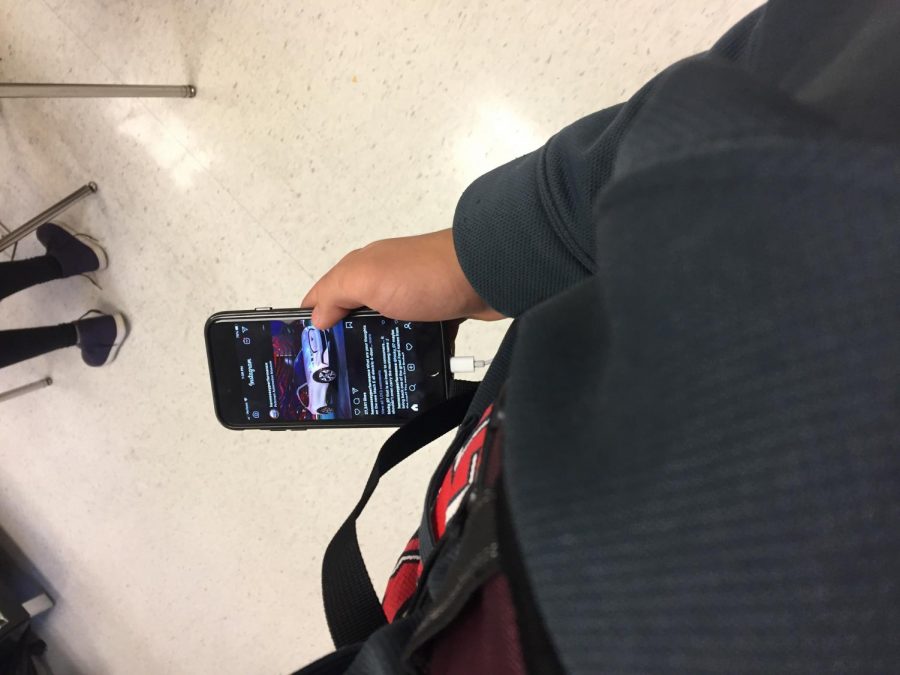Lebron and student athletes alike deserve freedom to speak
Hockey player Nicky Saffell checks their Instagram account on their phone.
December 11, 2019
“Fight for Freedom, stand with Hong Kong.” These seven words well phrase the voices of pro-democracy Hong Kong protesters and symbolize the current uprise in the United States. It all started on Oct. 4, when American sports executive and general manager of the Houston Rockets of the NBA Daryl Morey uploaded a tweet concerning his support for the pro-democracy Hong Kong protesters. This tweet led the NBA into an international feud with China, as Chinese businesses withdrew finance support from their joint ventures with the league and initiated a media boycott of the NBA.
The nightmare continued, this time affecting the opposite spectrum, when basketball player LeBron James criticized Daryl Morey’s recent tweet, claiming that Morey was “misinformed” and that his tweet could have potentially harmed the NBA teams that were playing in China. LeBron’s tweet brought upon another uproar, as pro-democracy Hong Kong protesters stomped on and burned James’ jerseys, indicating a disapproval on his beliefs. The issue has since simmered down, but the debate on athlete’s freedom of speech remains.
In the U.S., freedom of speech is a right that is ensured to every individual. Especially in the 21st century, a denial of freedom of speech would not only be absurd but also questionable in the context of the Constitution and the democratic stance of the U.S. On the other hand, it’s important to acknowledge that freedom of speech comes with responsibilities and at times inalienable consequences. “I think in any situation, if you want to exercise that right and speak freely on issues that may or may not be controversial, then you should do so understanding the consequences,” RM’s Athletic Director Jon Freda said, “I know there’s a big thing that athletes should just shut up and play their sport; I don’t agree with that.”
There are situations and times where we should be aware of how our speech may affect the opponent and there is without a doubt a certain ethical line that should be kept despite of freedom of speech. However, whether it be athlete, teacher, student or child, we should not be suppressed in expressing our beliefs. “We live in a democracy, and under the Constitution and the Amendments everyone has the freedom of speech. I don’t think just because of a career choice you should be restricted. I think athletes especially should watch out about what they say, because of where they are and how many people are watching them literally all the time. I don’t think they should not be able to comment about other things besides sports,” senior Naimah Lewis said.
At such sensitive times, it’s important to acknowledge the pros and cons of sports becoming intertwined with international issues. Athletes have the unique advantage of having a platform where they are able to advocate for issues they are passionate about and send out messages much faster than the everyday citizen. “I think sports is a great way to bring people together, especially over national borders, but I think people have to recognize that they are two separate things. Usually NBA players get pulled from high school or college, so while their life knowledge is of a 30 year old, they don’t necessarily know what to say all the time because they didn’t get that from school, when they should speak out and how to voice our their opinions,” Lewis said.



